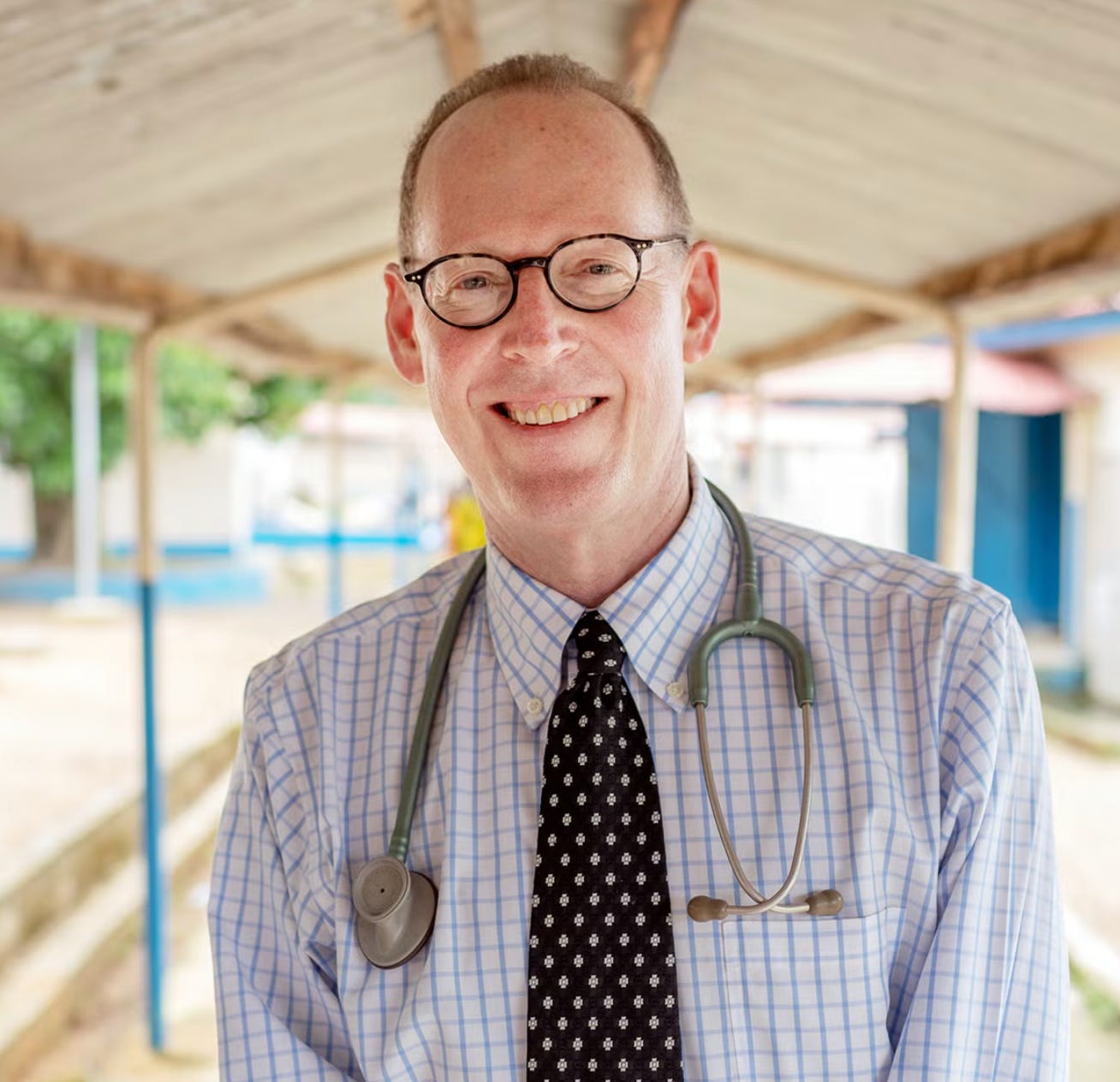Three years have passed since the world lost Dr. Paul Farmer, a mentor, humanitarian, and visionary whose impact on global health remains unmatched. Thousands have written about his unwavering commitment to the world’s poor, his tireless work at Partners In Health, and his refusal to accept that high-quality healthcare should be a privilege of wealth or geography. Yet, in the years since his passing, the world has changed in ways even Paul might have struggled to predict.
Artificial intelligence now reshapes industries faster than policies can regulate them. Geopolitical tensions—whether in Ukraine, Gaza, or the global competition over semiconductor dominance—are altering the fabric of international cooperation. Even the foundational institutions of global aid, are rethinking their models, shifting toward more sustainable, locally driven partnerships. Amid these shifts, I find myself asking: What would Paul Farmer advise us to do now?
The Clarity of a Moral Vision in an Age of Complexity
Paul’s moral clarity remains more relevant than ever. He didn’t just talk about equity; he embodied it by walking miles to remote villages, ensuring no one was beyond the reach of care. But his true genius lay in seeing systemic inequities without being paralyzed by their complexity.
In today’s world, where AI promises both incredible breakthroughs and unprecedented risks—such as bias in healthcare algorithms or the automation of jobs—Paul’s approach offers guidance. He would remind us that technology is a tool, not a solution. The solution lies in how we apply it, ensuring that AI serves humanity’s most vulnerable first, not last. His legacy challenges innovators to ask: Are we solving the problems that matter most, for the people who need it most?
Global Geopolitics and the Call for Solidarity
Paul believed in accompaniment—the idea that solidarity, not charity, is the foundation of lasting change. This principle could not be more important as the world becomes increasingly polarized. Nations today are retreating into protectionist policies, and global health funding often becomes collateral damage in geopolitical struggles. Yet, Paul would have insisted that our response should be the opposite: lean in, not pull back.
If he were alive today, I believe he would push for deeper collaboration between governments, NGOs, and businesses, calling for global solidarity in the face of shared challenges like climate-driven health crises and pandemic preparedness. His work taught us that real change comes from sustained partnerships rooted in respect, not paternalism.
International Development’s Shift Towards Local Leadership
Recent reforms reflect a shift toward empowering local organizations to lead development efforts—a move Paul would have championed. He often criticized “parachute” aid efforts that ignored local expertise. Instead, his vision of partnership was built on trust and shared responsibility.
For those of us working in global health or international development today, the question becomes: How do we build systems that don’t just deliver aid but foster self-sufficiency and dignity? Paul’s answer was simple but profound: invest in people, build infrastructure, and create systems that are sustainable, not dependent.
Entrepreneurs and Investors: A New Model of Impact
When I first met Paul as a medical student, he changed how I thought about my role in the world. It wasn’t enough to want to help people—you needed to act, to innovate, and to build systems that solved material problems. That lesson continues to inform my work today as I invest in technology solutions aimed at transforming healthcare delivery.
In today’s venture community, where AI, biotech, and global digital health are booming, we have an opportunity—and a responsibility—to apply the same clarity of vision that Paul exemplified. This means not just chasing profit, but also designing metrics for ethical success: lives saved, access improved, dignity preserved.
Imagine if every investor asked: Will this technology improve care for those at the margins? Will this innovation reduce disparities rather than deepen them? That’s the kind of reflection Paul would demand from us.
Building Systems of Love and Justice
Paul often said, “The idea that some lives matter less is the root of all that’s wrong with the world.” It’s a truth we cannot afford to forget, especially now.
AI will keep advancing, political dynamics will keep shifting, and global institutions will keep reshaping themselves. Yet, if we’re truly committed to creating a better future, the most meaningful changes won’t emerge from boardrooms or conferences alone—they will come from how we engage with one another across borders, sectors, and divisions. At the same time, reflecting on core values and fostering coherence at the board level sends a powerful signal to leadership and sets the foundation for a culture dedicated to building a more just and compassionate world.
This is the moment for entrepreneurs, policymakers, and global leaders to recommit to the values Paul Farmer embodied: dignity, justice, and compassion. His life’s work was built on the radical belief that everyone deserves the highest standard of care. Our challenge now is to apply that belief in every sphere of influence we touch—whether it’s designing AI systems, investing in healthcare infrastructure, or building policies that reflect our shared humanity.
So what would Paul Farmer advise us to do now? I think, in his kind voice, he would advise us to:
Prioritize Ethical Impact Over Profit
Focus on improving lives, especially for the most vulnerable, rather than chasing financial gains.Embrace Solidarity, Not Charity, for Lasting Change
Work alongside communities, empowering local leaders to drive their own progress.Lead with Values from the Top
Ensure leadership reflects justice, equity, and compassion, setting the tone for the entire organization.Stay Adaptable Without Losing Your Principles
As the world evolves, adjust your strategies while staying true to your core mission and ethics.Recognize That Small Actions Create Systemic Change
Meaningful change begins with everyday choices, rooted in empathy and respect for others.
In memory of Paul, let’s not just reflect on his legacy. Let’s act on it.
Salim Afshar







